After Swim Spray
$10.00
A spray with distilled water, vegetable glycerin, sodium ascorbate, frankincense, lavender, and lemon neutralizes chlorine using sodium ascorbate while hydrating and soothing skin and hair with glycerin and essential oils. It counteracts chlorine’s drying effects and leaves a pleasant scent, ideal for post-swimming use.
In stock
- Premium Quality
- Secure Payments
- National Shipping
Description
CHLORINE NEUTRALIZER
Ingredients: Distilled water, Vegetable glycerin, Sodium Ascorbate, Frankincense, Lavender, Lemon
A spray made with distilled water, vegetable glycerin, sodium ascorbate, frankincense, lavender, and lemon could have specific benefits for neutralizing chlorine, particularly in contexts like pool water on skin or hair, or for other surfaces exposed to chlorine. Below, I’ll break down the potential benefits of each ingredient and how they might contribute to neutralizing chlorine or mitigating its effects:
Distilled Water
- Benefit: Acts as a pure, neutral base for the spray, free from contaminants, minerals, or impurities that could interfere with the other ingredients or react with chlorine.
- Role in Neutralizing Chlorine: Distilled water dilutes chlorine on contact, reducing its concentration. While it doesn’t chemically neutralize chlorine, it serves as a safe carrier for active ingredients like sodium ascorbate.
Vegetable Glycerin
- Benefit: A natural humectant, it attracts and retains moisture, helping to hydrate and soothe skin or hair exposed to chlorine’s drying effects.
- Role in Neutralizing Chlorine: Glycerin doesn’t directly neutralize chlorine but protects and moisturizes skin and hair, counteracting chlorine’s drying and irritating properties. It also helps the spray adhere to surfaces, prolonging contact time for other active ingredients.
Sodium Ascorbate (Vitamin C)
- Benefit: Sodium ascorbate is a form of vitamin C and a proven chlorine neutralizer. It chemically reacts with chlorine (hypochlorous acid) to form dehydroascorbic acid and chloride ions, effectively neutralizing chlorine and rendering it harmless.
- Reaction: Chlorine (Cl₂) + Sodium Ascorbate → Dehydroascorbic Acid + Sodium Chloride (non-toxic).
- Additional Benefits: Acts as an antioxidant, protecting skin and hair from oxidative damage caused by chlorine exposure. It may also help reduce irritation and promote skin health.
- Role in Neutralizing Chlorine: This is the primary active ingredient for neutralizing chlorine, widely used in dechlorinating sprays for pool water, aquariums, or drinking water.
Frankincense Essential Oil
- Benefit: Known for its anti-inflammatory, soothing, and skin-regenerative properties, frankincense can help calm skin irritation caused by chlorine exposure.
- Role in Neutralizing Chlorine: Frankincense doesn’t directly neutralize chlorine but supports skin recovery by reducing redness, inflammation, and oxidative stress. It may also add a pleasant scent to the spray, improving user experience.
- Additional Note: Its antimicrobial properties could help cleanse skin of any residual bacteria or impurities from chlorinated water.
Lavender Essential Oil
- Benefit: Lavender is calming, anti-inflammatory, and promotes skin healing. It can soothe irritation or dryness caused by chlorine exposure.
- Role in Neutralizing Chlorine: Like frankincense, lavender doesn’t neutralize chlorine chemically but supports skin and hair health by reducing irritation and providing a calming effect. Its aroma can also counteract the harsh chlorine smell.
- Additional Note: Lavender’s antiseptic properties may help maintain the spray’s shelf life and cleanse skin.
Lemon Essential Oil
- Benefit: Lemon essential oil has antioxidant, antimicrobial, and astringent properties. It can refresh and cleanse skin while masking chlorine’s odor with a fresh citrus scent.
- Role in Neutralizing Chlorine: Lemon oil contains natural compounds like limonene, which may have mild antioxidant effects, potentially aiding in reducing oxidative damage from chlorine. However, it doesn’t directly neutralize chlorine.
- Additional Note: Lemon oil can brighten skin and hair, counteracting the dulling effect of chlorine exposure. Be cautious, as lemon oil is photosensitive and may increase sun sensitivity if used before sun exposure.
Combined Benefits of the Spray for Neutralizing Chlorine
- Effective Chlorine Neutralization: Sodium ascorbate is the key ingredient that chemically neutralizes chlorine, making the spray effective for removing chlorine from skin, hair, or surfaces after swimming or exposure to chlorinated water.
- Skin and Hair Protection: Vegetable glycerin, frankincense, and lavender work together to hydrate, soothe, and repair skin and hair, counteracting chlorine’s drying and irritating effects.
- Antioxidant Support: Sodium ascorbate and lemon oil provide antioxidant properties, protecting against oxidative stress from chlorine exposure.
- Pleasant Sensory Experience: Frankincense, lavender, and lemon essential oils create a soothing, refreshing scent, masking chlorine’s harsh smell and improving the user experience.
- Natural and Gentle: The ingredients are generally natural and skin-friendly (assuming proper dilution), making the spray suitable for sensitive skin or frequent use, such as after swimming.
Practical Applications
- Post-Swimming Rinse: Spray on skin or hair after swimming in a chlorinated pool to neutralize chlorine, hydrate, and soothe irritation.
- Surface Cleaning: Use on surfaces exposed to chlorinated water (e.g., pool equipment, shower tiles) to reduce chlorine residue.
- Scalp and Hair Care: Helps remove chlorine from hair, preventing dryness, brittleness, or discoloration, especially for frequent swimmers.
- Aromatherapy Bonus: The essential oils provide a calming, uplifting effect, enhancing relaxation after swimming.
Considerations and Precautions
- Dilution of Essential Oils: Essential oils (frankincense, lavender, lemon) must be properly diluted (typically 1-2% concentration, or about 6-12 drops per ounce of spray) to avoid skin irritation. Overuse can cause sensitivity or allergic reactions.
- Photosensitivity: Lemon essential oil can make skin photosensitive. Avoid sun exposure for 12-24 hours after applying the spray to skin, or use a phototoxin-free lemon oil.
- Patch Test: Test the spray on a small skin area before widespread use to ensure no allergic reactions to essential oils.
- Shelf Life: The spray’s shelf life may be limited due to natural ingredients. Adding a natural preservative or storing it in a cool, dark place can help maintain efficacy.
- Chlorine Concentration: The spray is most effective for neutralizing low to moderate chlorine levels (e.g., pool water). For high chlorine concentrations, a stronger sodium ascorbate solution may be needed.
Example Use Case
After swimming in a chlorinated pool, spray the mixture generously on skin and hair, let it sit for 30-60 seconds to allow sodium ascorbate to neutralize chlorine, then rinse with fresh water or leave on for continued hydration and soothing effects. The essential oils leave a pleasant scent, while glycerin keeps skin and hair moisturized.
Additional information
You must be logged in to post a review.


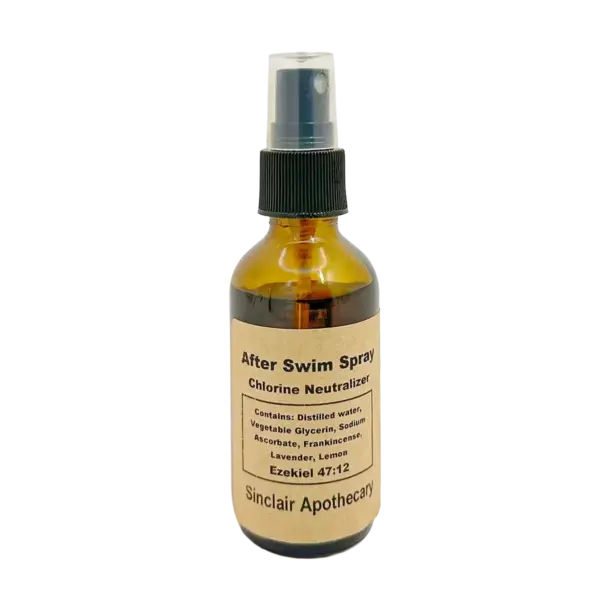
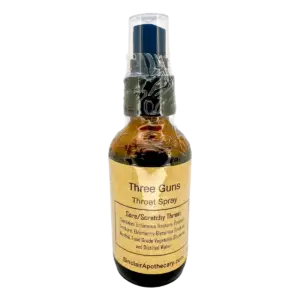
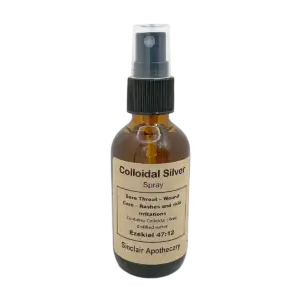
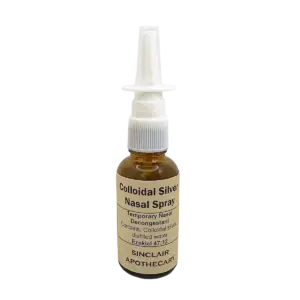
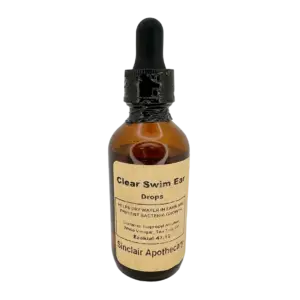
Reviews
There are no reviews yet.